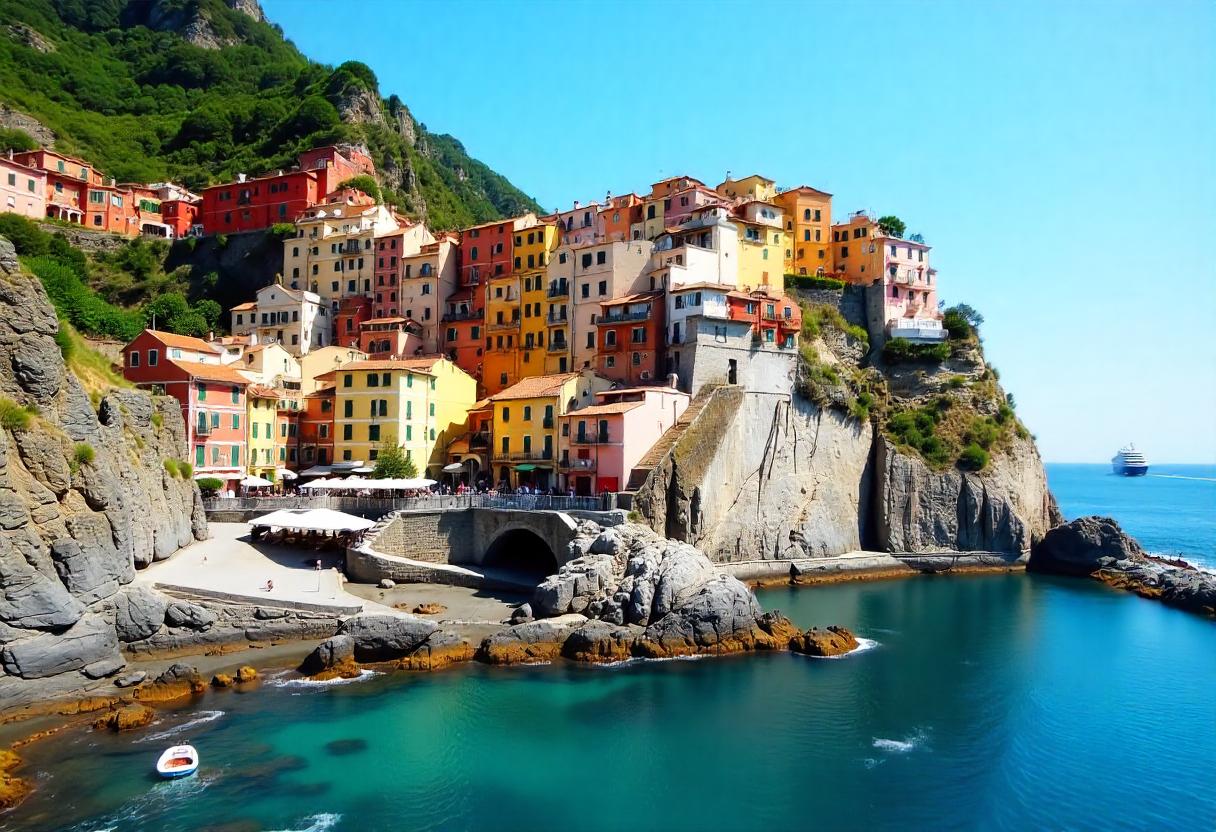Wednesday, May 14, 2025
Italy’s Genoa is positioning itself as a key player in the future of tourism, blending sustainable innovation with its rich cultural legacy. The city’s recent celebration at the Best in Travel 2025 Forum highlighted its commitment to becoming a top destination for eco-conscious travelers while preserving its historical charm. Genoa’s strategic focus on sustainable tourism, coupled with its dynamic cultural offerings, ensures that it is not only recognized as a must-visit spot for 2025 but also sets the stage for long-term tourism growth. Through initiatives that merge tradition with modernity, Genoa is making a lasting impact on the global tourism landscape.
The Palazzo Ducale in Genoa recently hosted the “Best in Travel Forum,” an inspiring event designed to spotlight the city’s future tourism prospects. This engaging gathering celebrated Genoa’s inclusion in Lonely Planet’s Best in Travel 2025, a prestigious guide recommending remarkable destinations for the coming year. As explained by Angelo Pittro, the director of Lonely Planet Italy, the publication’s objective is to highlight destinations that are not typically in the limelight but offer great potential for travel enthusiasts.
The event kicked off with welcoming remarks from Stefano Balleari, President of the Regional Council of Liguria, who emphasized the necessity for Genoa to evolve beyond its industrial roots and embrace a tourism-driven economy. The city, according to Balleari, must shift towards a “thinking industry,” with tourism playing a central role in this transformation.
Throughout the forum, a series of four technical discussions were held, each exploring key topics impacting the tourism industry. Sustainability in transport, eco-friendly tourism, outdoor activities, experiential tourism, cultural heritage, and food and wine tourism were among the most pressing themes. The forum aimed to foster a dialogue between policymakers, investors, tourism operators, and other industry leaders, helping to shape Genoa’s future tourism development.
One of the key discussions centered around the city’s cultural identity and its appeal to visitors. Genoa is known for its distinctive gastronomic offerings, with products such as the renowned Pesto di Pra’, a local delicacy, playing a major role in the city’s tourism. Additionally, outdoor and sports tourism has increasingly gained prominence in Genoa, with the city developing bike trails and trekking routes that take visitors through its pristine natural surroundings. Major international events like The Ocean Race Europe 2025 and Red Bull Cerro Abajo, the world’s most extreme urban downhill race, further highlight Genoa’s appeal as a destination for thrill-seekers.
Another crucial aspect of Genoa’s tourism strategy is sustainability. The city is committed to aligning its tourism growth with the global objectives set out in the 2030 Agenda for Sustainable Development. Mauro Ferrando, the President of Confindustria Genova’s Tourism, Culture, and Communication Section, pointed out that large-scale events such as Euroflora, the International Exhibition of Flowers and Ornamental Plants, are taking significant steps to minimize their environmental impact. Held across 85,000 square meters of public spaces in Genoa, Euroflora will incorporate ecological products and desalination systems for irrigation. At the close of the event, smaller plants will be donated to various local institutions, further promoting sustainability.
In terms of infrastructure, the city is focused on enhancing its connectivity and eco-friendly initiatives. The new City Airport Cristoforo Colombo aims to solidify Genoa’s position as a major international tourism hub. The airport is implementing innovative technologies to improve lighting and air conditioning systems, making the facility more energy-efficient. Additionally, a “people mover walkway” will connect the airport to the new railway station set to open in 2026, streamlining access for both locals and tourists.
The forum also highlighted Genoa’s commitment to experiential and cultural tourism. A prime example of this is the Rolli Experience, which showcases the city’s splendid historic residences. Genoa’s “Rolli Days” allow visitors to explore these palatial homes, immersing themselves in the city’s rich history and the allure of staying in its most iconic buildings. The initiative, which has been running since 2011, is part of a broader effort to preserve the city’s unique cultural heritage while offering tourists an authentic, immersive experience.
Genoa’s preservation of its historic caruggi (narrow alleys) also plays a crucial role in the city’s tourism identity. These alleys house a number of traditional shops, many of which have been preserved through the collaborative efforts of the Superintendence, the Municipality, and the Chamber of Commerce. These shops are more than just retail spaces; they offer a glimpse into the city’s past and a unique shopping experience that draws tourists from around the world.
Italy’s Genoa is positioning itself as a future tourism leader, combining sustainability with its rich cultural heritage. The city’s recent recognition at the Best in Travel 2025 Forum underscores its growing importance as a top destination for eco-conscious travelers and cultural enthusiasts alike.
The Genoa Best in Travel 2025 event, therefore, proved to be more than just a celebration of the city’s tourism achievements; it was a powerful statement of the direction in which Genoa is heading. With a commitment to sustainability, innovation, and cultural preservation, Genoa is positioning itself as a forward-thinking destination that honors its past while embracing the future of global tourism. This blend of history, sustainability, and modernity ensures that the city will remain an attractive destination for travelers seeking both adventure and authenticity.
